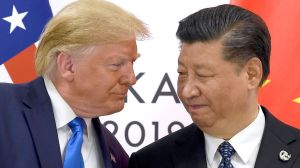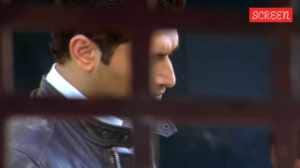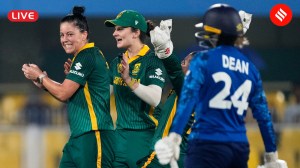Gujarat: SC presses fast forward
Having already put the Gujarat reference on the fast track, the Supreme Court today raised the possibility of giving its opinion before Octo...

Having already put the Gujarat reference on the fast track, the Supreme Court today raised the possibility of giving its opinion before October 6, sparing the Centre the burden of deciding by itself whether it was obliged to impose President’s Rule in the state on that date.
A five-judge bench headed by Chief Justice B N Kirpal announced that it would wrap up the hearings of the Gujarat reference by September 26 and told all the states and political parties — more than 30 — to adhere to this schedule. The Centre and the Election Commission are the only ones to be given as much time as they wanted. The court also clarified that it would not entertain any intervention applications.
|
Modi shunts out officers who ‘stated the facts’ to CEC
|
|
|
Gandhinagar: The Gujarat Govt today shunted four IPS officers out of the State Intelligence Department, including Additional DGP R B Srikumar, who, along with police chief K R Kaushik submitted a report to CEC J M Lyngdoh stating that the situation in the state wasn’t conducive for elections. |
At an earlier hearing, the court said — though with a touch of jest — that, once the arguments are over, it will not need more than 10 minutes to make up its mind on the Gujarat reference.
All this suggests a likelihood of the court delivering its opinion or at least its operative part by September-end. Kirpal is due to leave on an extended foreign tour in the first week of October.
Solicitor General Harish Salve today presented the Centre’s arguments, the thrust of which seemed to be to make a case to perpetuate Narendra Modi’s caretaker regime beyond October 6 in the face of the Centre’s own earlier admission that the failure to hold elections by then would violate Article 174 of the Constitution which stipulates that there cannot be a gap of more than six months between two sessions of the House.
Significantly, Salve shifted the focus to Article 164 which was interpreted to mean that a Government can remain in office for six months after the dissolution of the House. The tacit part of Salve’s submissions was that since the Gujarat Assembly was dissolved on July 19, Modi could remain a caretaker chief minister till January 19.
‘‘Whether Article 174 applies to a dissolved Assembly or not, Article 164 certainly does,’’ Salve asserted, though the Centre made no mention of this provision anywhere in its reference. The three questions raised in the reference deal only with Articles 174, 324 (power of the Election Commission to hold elections) and 356 (President’s Rule).
Salve created a stir by saying the court need not bother any longer about the Article 356 question because of a clarification made the Election Commission in its submissions that its decision to postpone the Gujarat election was taken ‘‘without reference to Article 356.’’
The Commission’s counsel, K K Venugopal, denied that anything in its submission amounted to any change in its position on Article 356. Salve sought to pacify him saying his intention was only to say that the Government did not wish to press the question about Article 356 in the light of the Commission’s submission.
After Salve made a presentation for almost four hours, Venugopal began his arguments towards the end of the day and he will resume tomorrow. In the course of Salve’s arguments, the bench often agreed with him on the need to interpret the Constitutional provisions in such a way that ‘‘democracy is insulated from abuse.’’






- 01
- 02
- 03
- 04
- 05

























